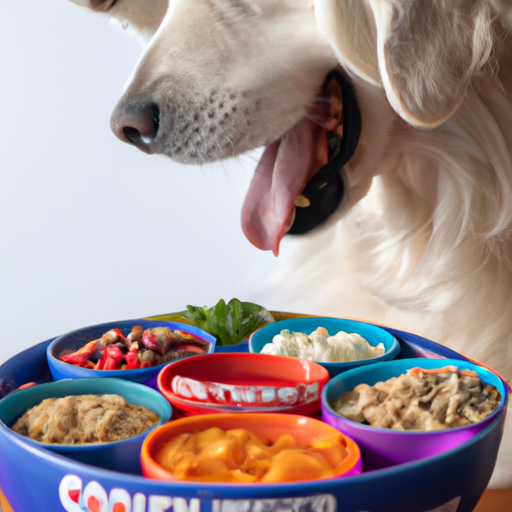Understanding Your Dog’s Nutritional Needs
As a caregiver to your furry friend, you probably understand the importance of a balanced diet. It’s the same with dogs. They need a varied diet that includes proteins, carbohydrates, fats, vitamins, and minerals.
Here’s a basic understanding of what each nutrient does:
- Proteins: These are body-building foods. They help in growth and tissue repair.
- Carbohydrates: They provide energy for your dog’s daily activities.
- Fats: They provide concentrated energy and help absorb vitamins.
- Vitamins and Minerals: These are necessary for various physiological functions and maintaining a healthy immune system.
Choosing the Right Dog Food
Shopping for dog food can be daunting with the vast array of brands and types available. Here’s a simple 3-step guide to narrow down your options:
- Look at the ingredients: High-quality dog food will have a source of animal protein as the first ingredient, not a grain or a by-product.
- Check for nutritional adequacy statement: This would tell you if the food provides complete and balanced nutrition.
- Consider your dog’s life stage and breed: Puppies, adults, and seniors have different nutritional requirements. Similarly, a Chihuahua’s needs would be different from a Great Dane’s.
Top 5 Dog Food Brands
Here’s a quick comparison of the top 5 dog food brands based on their ingredient quality, variety offered, and customer reviews:
| Brand | Main Ingredients | Life Stage | Price Range |
|---|---|---|---|
| Blue Buffalo | Deboned Chicken, Brown Rice, Barley | All | $$$ |
| Wellness | Deboned Chicken, Chicken Meal, Oatmeal | All | $$$ |
| Taste of the Wild | Water Buffalo, Lamb Meal, Chicken Meal | All | $$$ |
| Royal Canin | Chicken By-Product Meal, Wheat, Corn | Breed-specific | $$$$ |
| Nutro | Chicken, Chicken Meal, Split Peas | All | $$$ |
Creating a Balanced Diet
Even the best dog food can’t provide all the nutrients in the right proportion. You might need to supplement it with some fresh fruits, vegetables, and home-cooked meals. However, here’s a word of caution: not all human food is safe for dogs. Always check with your vet before introducing new food into your dog’s diet.
The Role of Exercise and Hydration
No matter how good the food is, without proper exercise and hydration, your dog’s health might suffer. Make sure your dog gets plenty of physical activity and fresh water, especially if it’s a high-energy breed.
FAQs
Q1: Is grain-free dog food better?
A1: Not necessarily. Grains can be a good source of fiber and carbohydrates. However, if your dog is allergic to grains, you might need to opt for grain-free food.
Q2: How often should I feed my dog?
A2: It depends on the age, size, and activity level of the dog. Generally, two meals a day work well for most dogs.
Q3: Can I feed my dog a vegetarian diet?
A3: Dogs are omnivores and can survive on a vegetarian diet, but they might miss out on certain nutrients. Always consult your vet if you’re considering this.
Q4: How much food should I feed my dog?
A4: It varies based on the size, age, and activity level of your dog. Check the feeding guide on the food package or consult with your vet.
Q5: Can dogs eat the same food as humans?
A5: While some human foods are safe for dogs, many are not. Always check with your vet before sharing your food with your dog.



